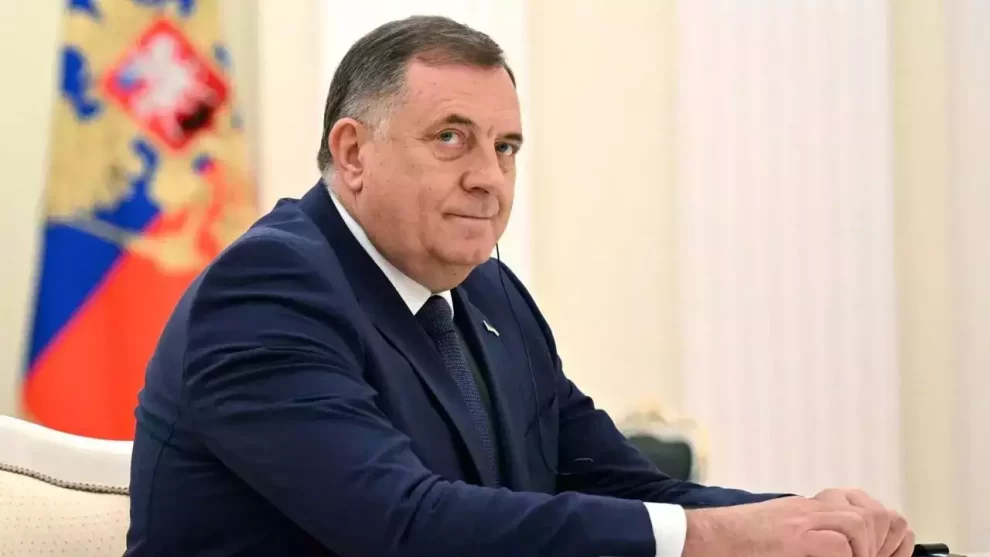The separatist Bosnian Serb leader on Thursday said police have been instructed to arrest and deport a top international official overseeing peace in Bosnia-Herzegovina if he enters the Serb-controlled regions in the war-torn Balkan state.
The warning by Bosnian Serb President Milorad Dodik further escalates tensions in Bosnia, where a bloody war in the 1990s killed more than 100,000 people and left millions homeless.
Bosnian Serbs say they do not recognize the authority of German government ex-Minister Christian Schmidt as Bosnia’s international High Representative. They claim he wasn’t legally installed for the top peacekeeping job and was not endorsed by the U.N. Security Council.
Dodik, president of the Republika Srpska (Serb Republic), about half of Bosnia that is in control of the Bosnian Serbs, has long advocated the secession of the region. The other half is the Bosniak-Croat federation – the entities formed under a U.S.-mediated peace deal that ended the 1992-1995 war.
“The instruction has been sent to the field today,” Dodik said at a news conference held along with Bosnia’s Security Minister Nenad Nesic, a Serb, who supported his initiative.
On Wednesday, announcing the ban, Dodik said: “If he (Schmidt) comes to a meeting in Republika Srpska, he will be kicked out. As soon as the police find out that Schmidt is in Republika Srpska, their task will be to organize a unit to expel him.”
He added that if the envoy transits through the territory, he will be given an “escort” to ensure he leaves “as soon as possible.”
There was no immediate reaction from the office of the high representative in Sarajevo.
The post of the international envoy was drawn up in the Dayton peace accords that ended Bosnia’s devastating war in the 1990s to oversee peace in the Balkan country, split into two autonomous regions – the Republika Srpska and the Federation dominated by Bosniaks and Croats.
Dodik has earlier threatened that if there’s an attempt to implement some of Schmidt’s proposed decisions in the Serb-controlled areas, “we will immediately declare independence” from the rest of Bosnia.
In July, the international envoy, who has powers to impose laws and sack officials seen as obstructing peace, revoked two laws signed by Dodik that suspended decisions made by Bosnia’s constitutional court and by Schmidt.
Bosnian prosecutors are in the process of filing charges against Dodik for his separatist actions and for defying decisions made by the High Representative. Dodik could face up to five years in prison if sentenced by a Bosnian court on those charges.
In response, Dodik’s supporters last week organized protests across Bosnia at administrative boundaries between the two regions, waving flags featuring Russian President Vladimir Putin and further raising ethnic tension.
Dodik, who has close ties to Putin and pro-Moscow Serbian populist leader Aleksandar Vucic, has openly been striving to separate Bosnian Serb territories from the rest of Bosnia and join them with neighboring Serbia.
He has been sanctioned by the U.S. and the U.K. for breaching the U.S. peace deal that ended the war.
The European Union and Germany have halted funding of projects in the Serb Republic over his policies but Dodik said he would turn to other countries, such as China, for investment.
There are widespread fears that Russia, acting through its ally Serbia, could inflame tensions in the Balkans to divert at least some of the world’s attention from the war in Ukraine.
Source : Daily Sabah






































